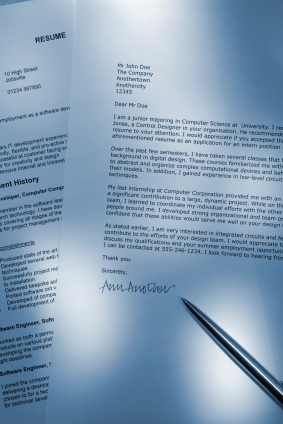It’s not enough for some potential employers to simply get a cover letter and resume in response to a job advertisement anymore. They may want a biography, a more detailed look into who you are personally and what your life experiences have been. It is a mini life story, and a good one will take a little work on your part. Do not make the mistake of enclosing a biography with just a standard resume and cover letter, for a job that does not specifically ask for it. Do some research on your job field specifically, and learn the protocol for when and where to submit a biography, if at all. A person applying as a construction worker probably won’t require one; whereas a CFO might.
Start by reading over biographies on the Internet or from the library. Look particularly for those that are short and attached to curriculum vitae or resumes, especially those of people who hold positions you might be interested in pursuing. Keep an eye out for ones that appeal to you personally, and set them aside as a rough guideline for how to conduct the writing of your own biography.
Next, take your resume as a launching pad, providing you with a clear chronology of events. Flesh out these events with any remarkable happenings in between or around your work and educational backgrounds, like accomplishments, professional development, or volunteer work, or personal details that were meaningful to you at the time. This is a brainstorming session, so throw on anything you find interesting or important to you, and edit it at a later point.
Now, pinpoint happenings in your life (education, background and career) that might be relevant to the position for which you are applying, and expound on those events. Be detailed as to what they meant to you, and, if needed, who the key players were in your experiences.
The hard part comes now, with editing. You’re going to want to cull down your brainstorming session into three or four relatively short paragraphs that are succinct, and relevant to the job you’re going for. You’ll want a strong introductory sentence, followed by a chronological personal history. If it helps, make an outline with headings and subheadings, and write a sentence or two for each of them. Sell yourself, not being too modest, and not being too show-off. You should be proud of your accomplishments, but not appear as though you have nothing new to learn.
When you’re finished, read it out loud to yourself and listen to your tone. Fix any awkward phrases or poor flow, and then have at least two other people whose writing and reading abilities you respect read over the content. Ask them to examine readability, relevance to the topic (the job you want), and look for grammatical and punctuation errors. Ask them for tough editing. Ask them too, if there is anything missing or they would like to know more about, pretending to be a potential employer.








